Through the Ages
The following gives a more detailed account of the company history in Hamburg than the shorter summary given at the Generations at Your Service page at this website.
The Hudtwalcker family originates from Lüdingworth, a village between Cuxhaven and Bremerhaven in the county of Hadeln, Germany. The “Land Hadeln” is farming country on the southern tip of the river Elbe, not far from where it joins the North Sea close to Cuxhaven.The first Hudtwalcker recorded is Johann Hudtwalcker (1608 – 1678). He married Margaretha (dead 1691, year of birth and surname not known). The couple had ten children, among them Jacob, born in Lüdingworth, died 1680. At this stage, the original family tree is split up in three branches according to where the children of Margaretha and Johann moved to and settled down. The third branch (Altona-Hamburg) of the Hudtwalcker family tree is the branch which is mentioned on this website and in the text below. Jacob Hudtwalcker (name of wife and further details are not known) had one son: Johann. Johann Hudtwalcker (dead 1720), is thus the third documented generation of the third branch of the Hudtwalcker family. He moved from Hadeln to Altona near Hamburg, where he worked as a small tradesman, and vendor of cheese. He married twice. From the 1st marriage in 1694 with Trinete Lörfen there was one child: Antje (1695) In 1707 he married Catharina Margarethe Wichmann (1707 – 1724). They had four children: Nicolaus Diedrich (1708 – 1783) ¨C68C (1710 – 1781) ¨C69C (1712 – 1716) ¨C70C (1715) When ¨C71C died in 1720, followed by the death of his wife in 1724, their three remaining small children were left alone. Among them was the future founder of the company Hudtwalcker & Co.
Jacob Hinrich Hudtwalcker (1710-1781)

Jacob Hinrich Hudtwalcker arrived in Hamburg from Altona on January 14, 1724, shortly after the death of his mother. In January 1727 he was able to find some kind of firm employment. According to his son, the Senator Johann Michael Hudtwalcker:
In his 17th year, my father was installed with the merchant Meinert von Winthem, who lived in Reichenstrasse, and traded with Herring, Cod Liver Oil and Fish Products. The question of monetary security for his employment became necessary, and both his guardians, people of great fortunes but of no family relations to him, supported him. He often told me with tears of gratitude, that they made their decisions based on his honest face only. With a tap on the shoulder they told him: “Boy, do not disappoint us” and they signed.
The early years in the business of Meinert von Winthem was a strict school, as the following description by his son Johann Michael Hudtwalcker shows:
“From a severe school, a sparse fatherly house, where life was very monotonous, the boy arrived at even stricter lodgings with his new master. He was not allowed to leave the house without permission and had almost no pocket money. He was well protected from temptations, because temptation had little hope of obtaining anything at all from him.”
In those days Hamburg supplied almost all of Germany, and a greater part of Austria, with Herring and dried fishes, as well as Cod Liver Oil. Beside his “Comptoirarbeiten”, Jacob Hinrich had to take his share in the storage- and warehouse, and participate in the packing of the various goods. The long working hours, together with the more than humble living conditions, made the early formative, and youthful years, a tough period. Jacob Hinrich stayed for 16 years with Meinert von Winthem. By then he had obtained his full confidence. And not without reason: When he started, von Winthem was not a wealthy man. At the time Jacob Hinrich left, at the age of 33, von Winthem had 300 000 German Mark on his account, a considerable amount of money in those days.
On April 18, 1743, Jacob Hinrich Hudtwalcker founded his own company in Hamburg, or, by the phrase of that time: “chose to establish himself”. During the 16 years with von Winthem, Jacob Hinrich had managed to save 1000 Marks. His old employer gave him 4000 Marks “as proof of gratitude”. Further he received around 5000 Marks from his brother Nicolaus Diedrich in Altona. With these 10 000 Marks Jacob Hinrich Hudtwalcker set to work. The beginning was small and slow, with long days. Quoting further from Johann Michael’s narrative :
“The business of my father was really like a peddler shop. My father ordered Cod Liver Oil or Herring from Holland, or bought it here and mostly sold it again by half or a quarter ton from his warehouse – to local peddlers or to merchants in Lauenburg or Mecklenburg, or to coachmen, who at that time came to Hamburg in big numbers, and always were eager to take with them some cargo at their own expenses when they were short of other freight. He had his dinner for 8 Groschen, lived outermost sparse and reserved, and earned by this business so much that he after two years, in April 1745, had the courage, when mayor Anderson died, to buy the former mayors house in the Catharinastrasse for 26 000 Mark, where he lived until his death. He rented out a part of the house, paid cash 6600 Mark on the purchasing price and thereby did not live expensively, although he often told me this purchase had been a step too fast given his situation at that time.”
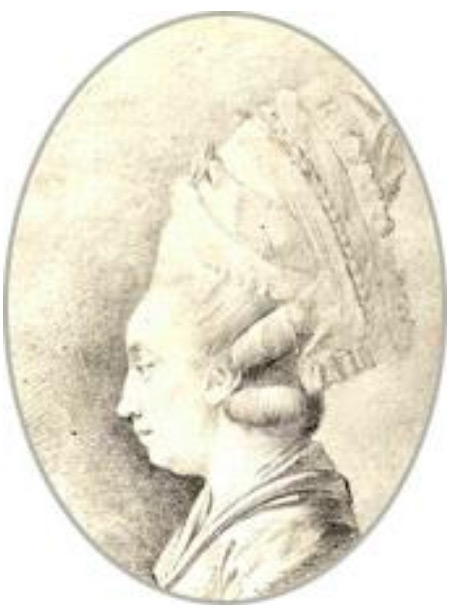
In 1746 Jacob Hinrich married Sara Elisabeth Ehlers (1728 – 1799), the daughter of confectioner. They had ten children:
Johann Michael (1747 – 1804)
Margaretha Elisabeth (1748 – 1794)
Sara Elisabeth (1750 – 1819)
Catharina Magdalena (1751 – 1806)
Jacob Hinrich (1753 – 1799)
Johanna Margaretha (1756 – 1807)
Nicolaus (1757 – 1832)
Cäcilia (1759 – 1765)
Christian Martin (1761 – 1835)
Daniel Conrad (1765 – 1796)
During the later years, Jacob Hinrich’s life took a remarkable turn from the poor orphan he had been as a boy: In 1762 Jacob Hinrich was appointed head dispenser at the hospital Gast- und Krankenhaus, in 1767 church juryman to St. Catharinen. In 1770 he became a member of the city treasury, and in 1774 its chairman. Upon his death in 1781, the company passed on to his oldest son:
Johann Michael Hudtwalcker (1747-1818)

Although his father had become a wealthy man, there was no change in the modest lifestyle in the Hudtwalcker home. When he was young, Johann Michael thought of studying theology instead of becoming a business man. However, his father was of another opinion and expressed as his innermost wish that his oldest son was to enter the family business. In the end the father decided. Later on, Johann Michael wrote :
“It took only half an hour with my caring father, who spoke directly to my heart, to change my mind. With great joy he announced my decision to the whole house. Everybody was happy with my decision.”
In July 1762 he started as trainee in his father’s company. 13 years later he took part in the daily decisions of the various commercial activities. As was customary at that time, the company, family and ownership was one and the same thing. The business related more the person than the company as such. From January 1, 1775, the name of the company was therefore: “Jacob Hinrich Hudtwalcker & Sohn”.
Due to the involvement of his mother, Sara Elisabeth, this name continued to be used Jacob Hinrich‘s death. Only on December 31, 1789, when she withdrew from all daily activities because of old age, the company changed name anew. From January 1, 1790, it was called: “Johann Michael Hudtwalcker & Co.”
Johann Michael too worked mostly with Herring and Cod Liver Oil. The main sources of supplies were Denmark and Norway. Beside these two commodities, the company engaged as commercial agents for groceries. The old company records also show an occasional business with whale baleen. His younger brother, Daniel Conrad, worked together with him, but when he died on June 25, 1796, Johann Michael carried on alone with sole responsibility for some years, until the time had come for new generations to enter the family business. On January 1, 1803, he brought his oldest son, Jacob Heinrich, into the company, and on January 1, 1807, his 2nd son, Carl, joined them. This also provided Johann Michael with the relief he needed, because he too, as his father, had a considerable career as a civil servant besides being a businessman: he was Senator of Hamburg from January 18, 1788 until May 30, 1814.
Together with his wife Elisabeth Moller, he had nine children:
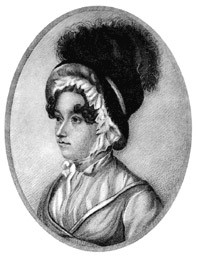
Hedwig Sara Elisabeth (1776 – 1818)
Amalia Thusnelda (1778 – 1779)
Jacob Hinrich (1779 – 1887)
Hermann (1781 – 1826)
Carl (1782 – 1854)
Thusnelda (1784 – 1866)
Ernst (1786 – 1823)
Caroline (1787 – 1787)
Ernestine (1789 – 1790)
Their daughter Thusnelda (1784 – 1866) married Dr. med Jonas Ludwig von Hess, who became known as an author, and a city patriot in 1813, when he was chief of the civil guard. When Johann Michael died December 14, 1818, his two sons:
Jacob Heinrich (1799-1837) and Carl Hudtwalcker (1782-1854)
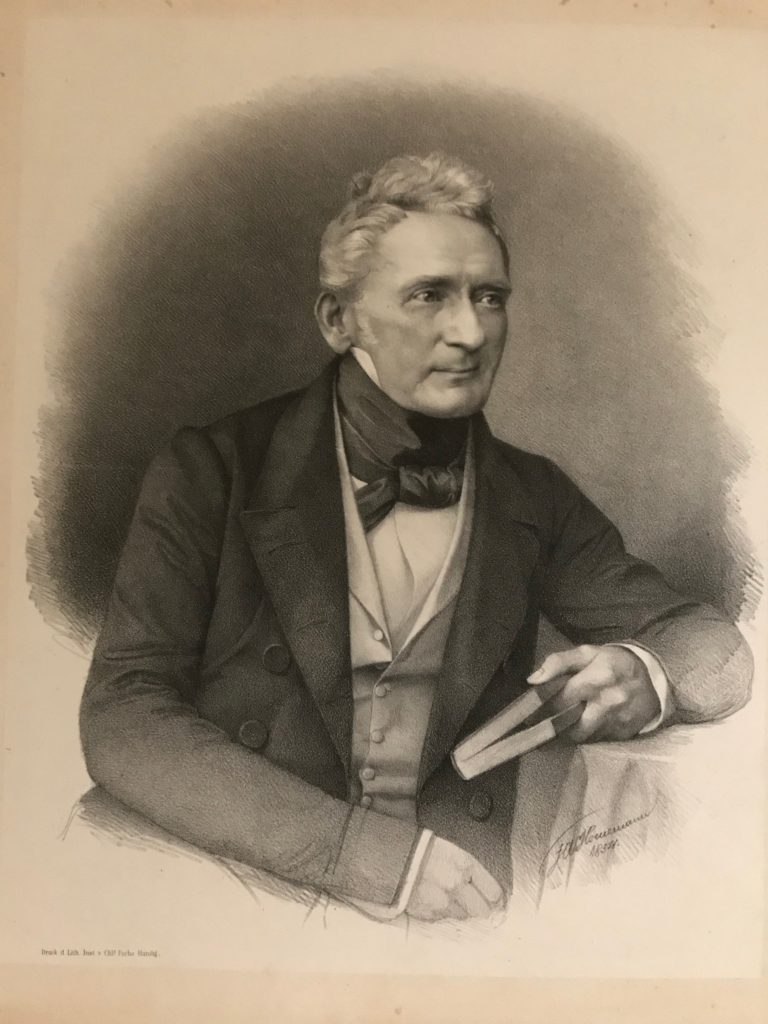
Jacob Heinrich (1799 – 1837) and Carl Hudtwalcker (1782 – 1854) had already been in the business for more then 10 years. One can only presume it had been the hope of their father that the brothers would continue to run the company together, but apparently they had conflicting ideas on how to conduct the business.
Carl, the younger brother, was married to Charlotte Christiane Fiedler (Copenhagen 1791 – 1866 Hamburg) from Denmark. Due to the presumed disagreements with his brother, Carl moved to Copenhagen where he on May 1, 1819, founded the company “Hudtwalcker & Fiedler” together with his brother in law.

In his testament, Johann Michael expressed the wish that changing the company name should be a decision made by his sons. This consideration was en lieu with the fashion of those days; the business followed the person, not a company. Furthermore he did not want his own name to be part of the name of the company after his death also because:
“ … although by every caution which I confide in you, there should be no danger of stains from my own name.”
According to this wish, Jacob Heinrich on May 1, 1819, continued the company under the name of “Hudtwalcker & Co.” One may also see this as a symptom of the Zeitgeist, and the new emerging era unfolding by the turn of the century. The approach where a business was depending on, and related to, a specific person was out-dated. Instead the situation shifted in the opposite direction: companies themselves were becoming the important factor, not persons. The individual was to be replaced by an object (“the company”). This was a general development also observable in society at large with the emerging growth of what was to become big institutions, in both the public and the private sectors.
The activities of Carl Hudtwalcker in Copenhagen did not bring the desired results. On June 30, 1826, he withdrew from “Hudtwalcker & Fiedler” – from then on run solely by his brother in law under the name of “Fiedler & Co.” – and returned to Hamburg. On September 1 in the same year, Jacob Heinrich admitted his younger brother as partner. But also this new attempt of cooperation by the two brothers did not turn out too well. It was to be a short lived occurrence. On December 31, 1831, they split up for the second time. From January 1, 1832, one had the rather curious situation of the existence of two Hudtwalcker companies in Hamburg: “Hudtwalcker & Co.” managed by Jacob Heinrich, and “Carl Hudtwalcker” by Carl.
A decisive turning point in the story of the family company was the unexpected death of Jacob Heinrich on January 7, 1837. Four days later, on January 11, 1837, his company had ceased to exist, but its business was continued by the brother Carl through his house. As Jacob Heinrich had died unmarried and without children, the inheritance ofJohann Michael was united into one branch of the meanwhile growing Hudtwalcker family. Carl was to continue the business true to the maxims of his father and grandfather: A modest lifestyle combined with no changes in the way the business had been handled by his predecessors. Herring and Cod Liver Oil continued to be the main articles.

Charlotte Christiane and Carl had ten children:
Johann Michael (1813 – 1835)
Thora Christina (1814 – 1887)
Carl (1816 – 1850)
Unnamed son (dead at birth in 1817)
Thusnelde (1819 – 1889)
Charlotte (1820 – 1868)
Ernst (1822 – 1824)
Melita (1823 – 1834)
Amanda (1825 – 1895)
Heinrich (1829 – 1896)
Thora Christina (1814 – 1887) married the businessman Johann Arnold Mutzenbecher, (1808 – 1848), and the daughter Thusnelda (1819 – 1889) married the insurance clerk Gysbert Conrad Goverts (1808 – 1881). As was customary in that time, the two sons, Carl (junior) (1816 – 1850) as well as the youngest child, Heinrich (1829 – 1896) were regarded as the only possible successors to the family company.
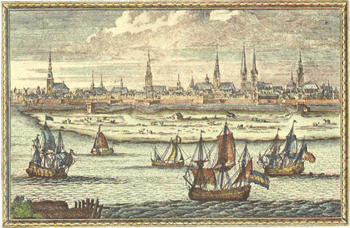
Modern times were catching up with the old fashioned and traditional approaches. After 1815, Hamburg had, as an independent city, conquered the admission to the wide word. During the 1700th century the inhabitants of the city had increased from around 60 to 70 000. Thereby Hamburg had become one of the biggest cities in Germany. The number continued to climb. By the year of 1800 the population could be estimated to about 130 000 persons. New forms of trade were also knocking on the established doors. How a commerce was founded, and regulations, were changing too, but there was not yet anything like an official trade register, or official trade directory. As a kind of predecessor to this, a private “Company-office” offered its services for documenting changes in the various enterprises. They also made this public knowledge by notifying the Bourse, and by advertisements in the daily newspapers.
On January 3, 1838, Carl Hudtwalcker accompanied by his son Carl (Junior) appeared before the Company-office, and: “declared in compatibility with the date of January 1, 1838, to have founded the commercial society by the name of Hudtwalcker & Co.” Thereby the continuity of the 3rd generation was ensured and publicly recorded.
But things were not to proceed as foreseen. Carl (Junior) only stayed for two years with his father. On September 1, 1840, he left the company. Like many of his German contemporaries, he felt a great longing to explore the world beyond the invisible yet confining walls of their native country. Conditions at home were too limited, the ties too tight. Foreign shores and territories overseas, recently made more easily accessible, were much more tempting than life in Hamburg with its deeply rooted conservatism and traditional points of view, perceptions and thinking. Carl (Junior) travelled to the United States, then on to South America where he died unmarried in Rio de Janeiro, Brazil, on August 10, 1850.
Johann Friedrich Vernet, previously employed as a confidential clerk, was chosen to replace the position of Carl (Junior) in the company. However, yet again the ever crucial and important question of the family succession had to be solved. When Carl‘s youngest son, Heinrich, on June 24, 1853, obtained procuration, the stage was finally set for the family continuation of the company. It was on high time, as after an eventful life, Carl Hudtwalcker closed his eyes on June 2, 1854. True to tradition, his widow, Charlotte Christiane, continued the family business together with their son Heinrich and Johann Friedrich Vernet. This fellowship lasted until December 31, 1866, a few days after the death of Charlotte Christiane on December 27.
Her death occurred in a year which marks a milestone in the history of Germany. Under the reign of Chancellor Bismarck, the aspiring Preussen had solved the so-called “German question” to its own advantage on the battlefields of Böhmen. Hamburg gave up its position as an independent city to become a member of the North-German Federation, and five years later, Hamburg joined the German realm. The direct consequences of this step for commerce and trade, was that many of the boundaries, which up to then had effectively served as restrictions against inland business expansion, disappeared within a relatively short period of time. As the German realm manifested itself as one united economy covering all fields of trade and commerce, this opened up manifold possibilities for growth. But even stronger forces were lurking in the wings of history, impatiently gathering strength, eager to bring about an unsurpassed and fundamental change in society and human life: Industrialisation. One result of the new era was a huge population increase:
Around the year 1800, Hamburg had an estimate of 130 000 citizens. By the year of 1865, this had risen to 260 000. 1872 was to become the 3rd, 1880 the 4th and 1888 the 5th where the numbers of inhabitants increased by a hundred thousand. As technique and trade moved closer together, while the demand for raw material became more crucial by each passing year, the need to develop the transportation system lead to an upheaval of activity hitherto not seen or experienced. What yesterday was unimaginable and beyond comprehension, suddenly became a living reality within a short period of time. The development had huge consequences on business and commerce. It was up to the generation which from 1860 to around 1875 were to hold responsible positions, to face the big task of how adjust to the new without laying waste the fields from which everything had grown. One person standing on the threshold between the old and the new was:
Heinrich Hudtwalcker (1829-1896)
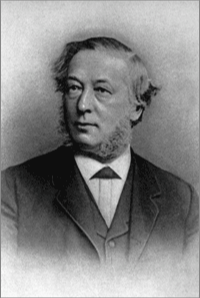
Heinrich had obtained procuration in 1853, and in 1855, following the death of his father, he became joint owner of the company. The fellowship leading the company lasted until the death of Charlotte Christiane in 1866.
When Johann Friedrich Vernet died on May 26, 1872, Heinrich alone was in charge of the old family business, a position he maintained for 24 years until his death in 1896.
Heinrich was able not only to adjust, but further to take advantage of, the new business climate by enlarging the product range. Besides the “old horse” Cod Liver Oil, he built a significant trade based on Palm Kernel Oil, Palm Oil, Coco Oil and Tallow.
Heinrich was married to Anna Sophie Petit (Lübeck 1842 – Hamburg 1892). She was a daughter of the Danish consul to Lübeck, Charles Petit and his wife Sophie Buchholz.
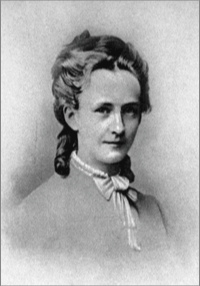
Together Heinrich and Anna had six children:
Sophie Charlotte (1870 – 1879)
Carl (1870 – 1879)
Hedwig (1872 – 1891)
Anna (1874 – 1894)
Elisabeth (1878 – 1902)
Heinrich Carl (1880 – 1952)
But was business prosperous, fate however suddenly intervened and again placed the Hudtwalcker family, and the company, on an unforeseen test of survival.
When Heinrich died on June 3, 1896, 67 years old, his youngest child and only son still alive:
Heinrich Carl Hudtwalcker (1880-1952)
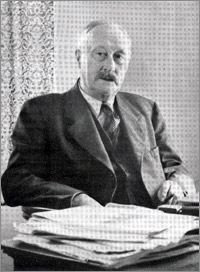
Heinrich Carl Hudtwalcker was only 16 years old and a minor. By this unexpected twist of fate, the history of the old family company in Hamburg were to turn full cycle. If it was a sign that it began with an orphan, then it was to be another sign that it ended with an orphan. The “founding father” of the family business, Jacob Hinrich Hudtwalcker, had been an orphan without means, entirely depending on the good will of his guardians and had built the business with his own bare hands. Heinrich Carl brought the business to new heights, but on his death in 1952 – 209 years after Jacob Hinrich “had chosen to establish himself” – the continuity of the company within the family was not secured.
As Heinrich Carl was under aged, Carl Friedrich Wilhelm Nottebohm and Carl Johannes Ernst Hertz, in 1900 followed by Ferdinand Eduard Schlüter, became his guardians. The company for 7 years was lead by two of his late father’s trusted collaborators. On January 2, 1903, the Hamburg Trade Register made it publicly known that Heinrich Carl had become sole owner of Hudtwalcker & Co. Thereby he became the 5th generation to run the family company.
Heinrich Carl was to face even tougher challenges than any of his predecessors. He was to lead the company through turbulent and troubled times; two World Wars, as well as the years before and after each World War, which were far from unproblematic for neither Germany as a nation or the company. The time span covering his years in the business were to see the highest peaks and the darkest valleys, an even faster development of commerce and trade than experienced before, and was to be a period offering big opportunities and equally big problems. One example of the latter was the Allied air bombardment of Hamburg. During a night in July 1943, the company office, factory and warehouse, all stocks and equipment were completely destroyed.

It had been said about the Hudtwalcker family, that “that blood does not run through their veins, but Cod Liver Oil.” And indeed Heinrich Carl focused on what had been the core business of the company since the very beginning: Cod Liver Oils and Fish Oils. The turn of the century brought a growth in world trade on a scale few, if any, had thought to be possible. Accordingly, the opportunties offered were on an hitherto unseen scale. Norway had for centuries been the major raw material supplier for the mentioned oils. Heinrich Carl realised early on that being close to the main source of supplies would be a key element for the future. Furthermore, it would give the company a big strategic advance on the markets. And on November 1, 1905, he established Hudtwalcker & Co. in Christiania (Oslo), Norway. The timing was perfect. Norwegian whalers were about to undertake their first tests with seagoing whale oil refineries in the Antarctic. Heinrich Carl had strong personal relations to the pioneers of this booming industry, and during the years leading up to the 1st WW, the new Oslo office benefited from ample supplies of whale oil, which was used in the leather and tanning industries, and later on also sold to hardening factories for their production of edible fat.
But it was on the personal level Norway was to play a key role in the history of the Hudtwalcker family. Heinrich Carlmarried Sigrid Holm (1879 – 1928), the daughter of a priest from Tysfjord in Nordland county in Norway. They lived partly in Christiania, partly in Hamburg and had three sons, two born in Hamburg, one in Christiania:
Heinrich Dierk (1904-1931) Carl Heinrich (Christiania 1912-1991) Jürgen Olaf (1915-1984)
On April 28, 1928, Sigrid Holm died in Hamburg. Heinrich Dierk died on March 10, 1931, in Arosa, Switzerland.

Carl Heinrich settled in Oslo, Norway. Manager of Hudtwalcker & Co. AS, Oslo, from 1938 until 1991. He was the 6th generation in the old family business, and the one with the longest serving period. Jürgen Olaf had his own art gallery,“Gallery Olaf Hudtwalcker”, in Frankfurt Am Main. He was also President of the German Jazz Federation. In later years he lived in Barcelona, Spain.
Some years after the death of his 1st wife, Heinrich Carl married Maria Agatha Maier (1895 – 1966). There were no children from the 2nd marriage. On December 12, 1952,Heinrich Carl died. No last will was found by his two surviving sons.
The days of the old family company Hudtwalcker & Co. in Hamburg were over.
Written by: Original text by the Wirtschaftsgeschichtlichen Forschungsstelle e.V., Hamburg, 1953. Manuscript: Dr. E. Hieke. Translated from German, and partly rewritten, by John Michael Hudtwalcker, Oslo, 2005.References: Deutsches Geschlechterbuch Band 19 (DG19), 1911, by Dr. Bernhard Koerner, Verlag C.A. Starke, Görlitz, Germany, and Hamburger Geschlechterbuch Band 2, also by Dr. Bernhard Koerner in cooperation with Dr. Ascan W. Lutteroth, 1911, Verlag C.A. Starke.
www.hudtwalcker.com 2014
